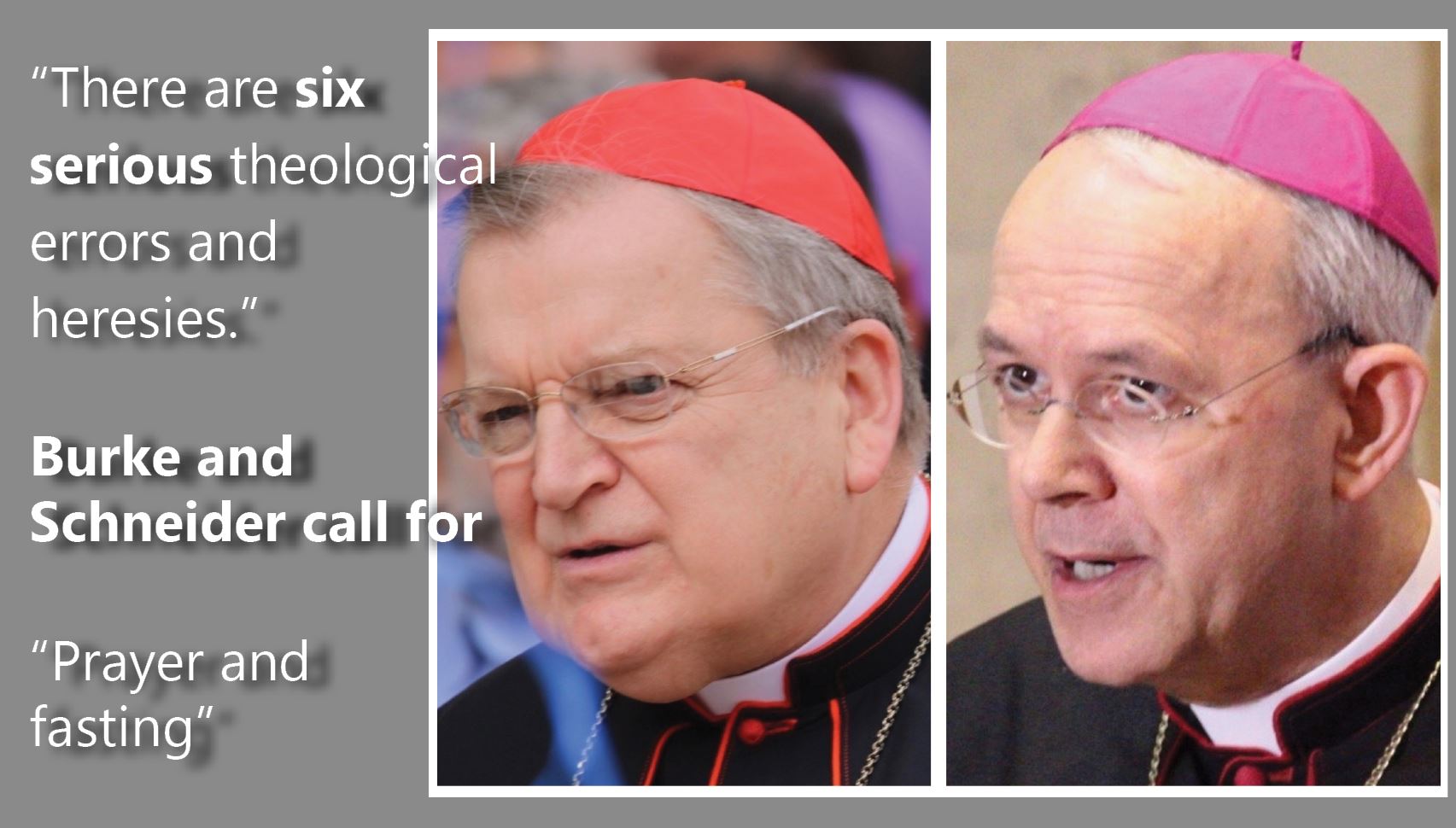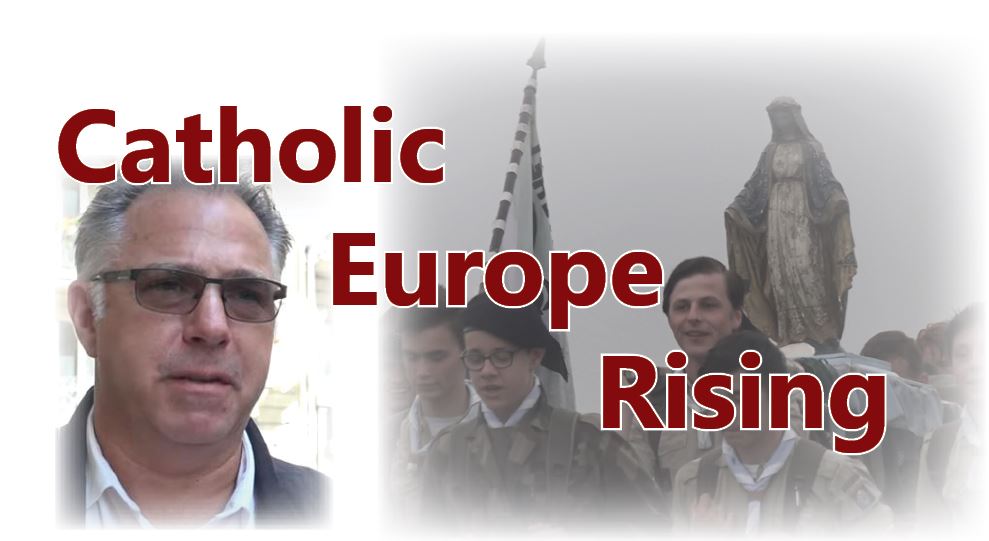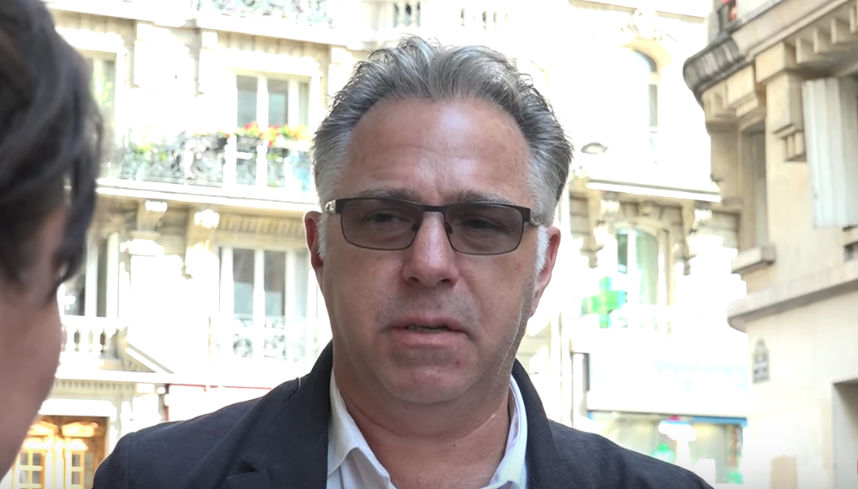
Articles (2301)

Remnant Rome Report (3)
The Remnent Newspaper traveled to Rome for coverage of the Conclave.
View items...
Tradition Remembered (3)
The Remnant Will Never Forget
The Remnant devotes this section of our exclusively to testimonies by those who lived through the revolution of the Second Vatican Council.
This page is reserved for those who saw what happened, or heard what happened from those who did, and who truly understand how Catholic families were blown apart. Visitors who have personal reflections, or memories of traditionalists pioneers, or reminicences of the revolution are encouraged to tell their stories and share their pictures here. . . so that we will never forget.
View items...

Vatican Sex Abuse Summit in Rome (0)
RTV Covers Vatican Sex Abuse Summit in Rome
Remnant TV was in Rome this past week covering the Vatican’s clerical sexual abuse summit on the “protection of minors”. It seemed a dismal assignment, to be sure, but the reason it was necessary for The Remnant to be in the Eternal City was so we could throw in with our traditional Catholic allies in Rome who’d organized an act of formal resistance to the Vatican sham summit.
Going in, we all knew that the ultimate goal of the summit was to establish child abuse—not rampant homosexuality in the priesthood—as the main cause of a crisis in the Catholic Church which now rivals that of the Protestant Revolt. (Remnant TV coverage of this event as well as the Vatican summit itself, can be found on The Remnant’s YouTube channel, and for your convenience is laid out below:
View items...
Remnant Cartoons (97)
Have you subscribed to The Remnant’s print edition yet? We come out every two weeks, and each issue includes the very latest Remnant Cartoon!
SUBSCRIBE : https://remnantnewspaper.com/web/index.php/subscribe-today
View items...New from Remnant TV. . .
Reporting from Austria, Michael Matt describes how the explosion of traditional Catholicism in Europe signals Modernism's fundamental vulnerability.
Case in Point: Nearly 20,000 came together for a traditional Catholic rendezvous in France over Pentecost weekend that promises two things:
REVOLUTIONARY FAIL: Traditional Catholic Uprising Under Francis
By: Michael J. Matt | Editor Author's Intro (Exclusive for The Remnant): The feeling a lot of Catholics have today in the Church is often similar to a feeling of being alienated from your own country. I talked about this many times with my friend Aldo Maria Valli, a journalist and a writer, who has been a vaticanist for years. In his blog Duc in altum (among the most popular and authoritative) he has long been committed to the defense of Catholic tradition, the right doctrine and correct liturgy, even if years ago he was more a Catholic leaning toward the liberal side. I too, a Church musician for decades, have tried to understand the reasons behind the many changes in the Church in recent years, changes that now I can no longer justify. And it seems things are not going to change soon. This has given to us a sense of being uprooted, and this is the main reason behind our book, "Uprooted. Dialogues on the Liquid Church" (2018 Chorabooks). It is a book in the form of dialogue about the many issues that we are facing: liturgy, homosexuality, crisis of priesthood, mercy and justice and many more.
Author's Intro (Exclusive for The Remnant): The feeling a lot of Catholics have today in the Church is often similar to a feeling of being alienated from your own country. I talked about this many times with my friend Aldo Maria Valli, a journalist and a writer, who has been a vaticanist for years. In his blog Duc in altum (among the most popular and authoritative) he has long been committed to the defense of Catholic tradition, the right doctrine and correct liturgy, even if years ago he was more a Catholic leaning toward the liberal side. I too, a Church musician for decades, have tried to understand the reasons behind the many changes in the Church in recent years, changes that now I can no longer justify. And it seems things are not going to change soon. This has given to us a sense of being uprooted, and this is the main reason behind our book, "Uprooted. Dialogues on the Liquid Church" (2018 Chorabooks). It is a book in the form of dialogue about the many issues that we are facing: liturgy, homosexuality, crisis of priesthood, mercy and justice and many more.

Explanatory note to the “Declaration of the truths relating to some of the most common errors in the life of the Church of our time”
In our time the Church is experiencing one of the greatest spiritual epidemics, that is, an almost universal doctrinal confusion and disorientation, which is a seriously contagious danger for spiritual health and eternal salvation for many souls. At the same time one has to recognize a widespread lethargy in the exercise of the Magisterium on different levels of the Church’s hierarchy in our days. This is largely caused by the non-compliance with the Apostolic duty - as stated also by the Second Vatican Council - to “vigilantly ward off any errors that threaten the flock” (Lumen gentium, 25).
FAITHFUL SHEPHERDS: Burke, Schneider Defend Truth in Time of Crisis
By: Michael J. Matt | EditorNew From RTV. . .
The day before the 2019 Pilgrimage from Paris to Chartres, U.S. coordinator Michael J. Matt explains the significance of the largest international traditional Catholic annual rendezvous in the world today--the Notre Dame de Chretiente Pentecost Pilgrimage to Chartres. With over 10,000 traditional Catholics coming into Paris from all over the world, Michael comments on what this is, its history and what it portends for the future of the Catholic Church.
THE FRENCH CONNECTION: Michael Matt On Massive Catholic Rendezvous in France
By: Michael J. Matt | Editor
The Cathedral of Chartres is the Key to Understanding the Pilgrimage to Chartres
This has been standing here for centuries. The premier work of man perhaps in the whole Western world, and it’s without a signature: Chartres. A celebration to God’s glory and to the dignity of man. All that’s left, most artists seem to feel these days, is man... There aren’t any celebrations. Ours, the scientists keep telling us, is a universe which is disposable. You know, it might be just this one anonymous glory of all things, this rich stone forest, this epic chant, this gaiety, this grand, choiring shout of affirmation, which we choose when all our cities are dust, to stand intact, to mark where we have been, to testify to what we had it in us to accomplish.” - Orson Welles

Umbria, not Montecasino; the true cradle of Western Monasticism
In tourist brochures, Umbria is called the “green heart” of Italy - the only region[1] without a coast, and the exact geographic centre of the country. Though the most tourists usually hear about Umbria is about St. Francis, his was in fact a late revival; the roots of Catholic mystical spirituality go much deeper into Umbrian history.
WHERE HAVE ALL the MONASTERIES GONE? Freemasonry and the Fall of Catholic Europe
Written by Hilary WhiteNew from RTV...

From the Editor's Desk, Michael J. Matt takes a closer look at the ramifications of huge advances for the populist movement in the recent European elections. What does this tell us about the EU and the pontificate of Pope Francis?
Italian journalist Antonio Socci says the vote for Matteo Salvini—the populist leader who entrusted Italy the Mother of God recently in Milan—was in fact a vote against Pope Francis and his globalist open-borders friends. Is Socci right?
By the way, why does Francis, who has met with Bono, the abortionist Bonino and Joe Biden, refuse to meet with Salvini?
 Photo: Walter Matt
Photo: Walter Matt
In the April 30th issue of The Remnant Newspaper, the week after Notre Dame burned and amid rumors of coming glass roofs and “modernists monstrosities”, Michael Matt wrote the following:
And if we’re to make an educated conjecture on what will happen to Notre Dame in Paris, perhaps we should look to Notre Dame de Chartres (also UNESCO World Heritage Site) which for the past ten years has been undergoing one of the greatest state-sponsored restoration projects in Europe. The state will restore Notre Dame in all of her glory, perhaps just in time for the post-Novus Ordo victory party when she will become ours again. In France the churches are all state-owned; so this is hardly mere wishful thinking.”
NOTRE DAME WINS: Iconic French Cathedral to be Faithfully Restored
Written by Tess Mullins | Staff WriterNew from RTV. . .
St. Bede was born in northern England in the year 673. At the age of seven, he was sent, as an oblate, to a nearby monastery. In 686 the plague struck, and only two surviving monks were capable of singing the full offices; one was Bede, about 13 years old at the time. When he was only19, he was ordained a deacon by the bishop of his diocese. He became a priest at the age of 30.
A Letter from Rome...

In traditionalist circles, the city of Rome is sometimes seen as a center of doctrinal corruption and anti-ethical morality. But Rome, in addition to remaining the perennial center of universal Christianity, is also the place where, in the last fifty years since the promulgation of the Novus Ordo Missae, an unwavering loyalty to the ancient Roman Rite has been displayed by both the clergy and the laity alike. It is worth remembering this as we mark the anniversary of the liturgical reform, initiated by the Second Vatican Council and implemented by Paul VI, which the Jesuit historian of the Church Giacomo Martina has called “an authentic liturgical revolution, much greater than that of the Council of Trent” (Storia della Chiesa, Morcelliana, Brescia 1995, vol. III, p. 359).





